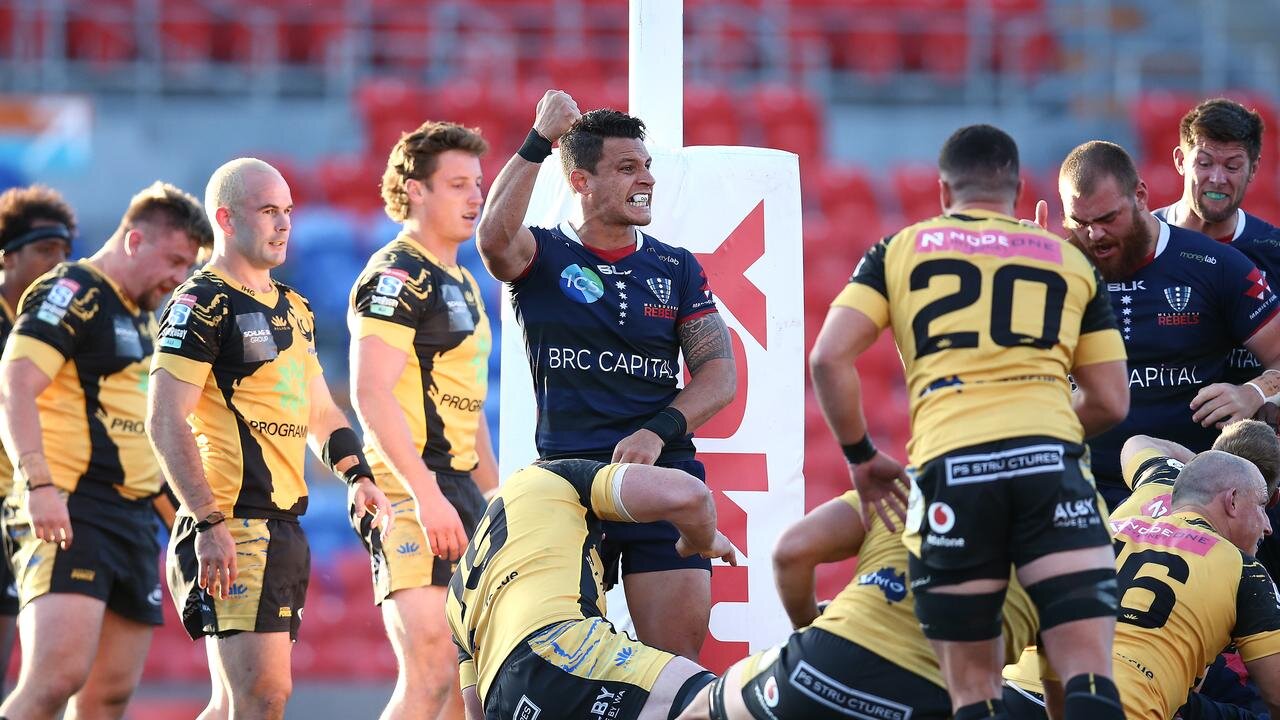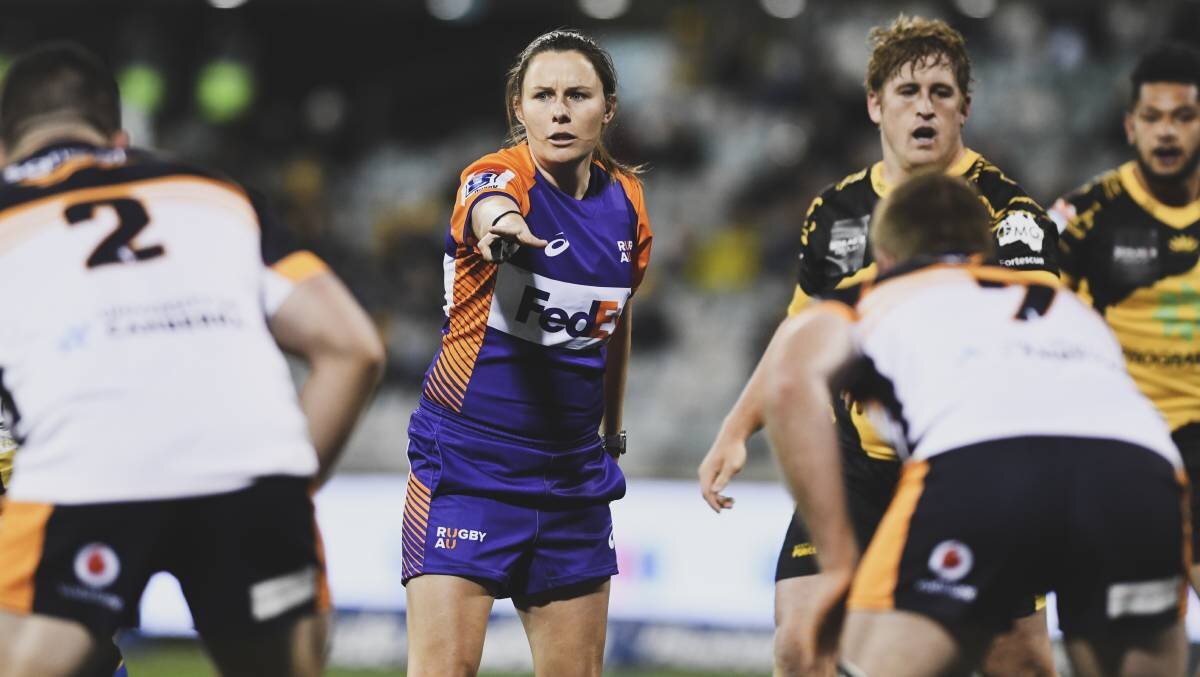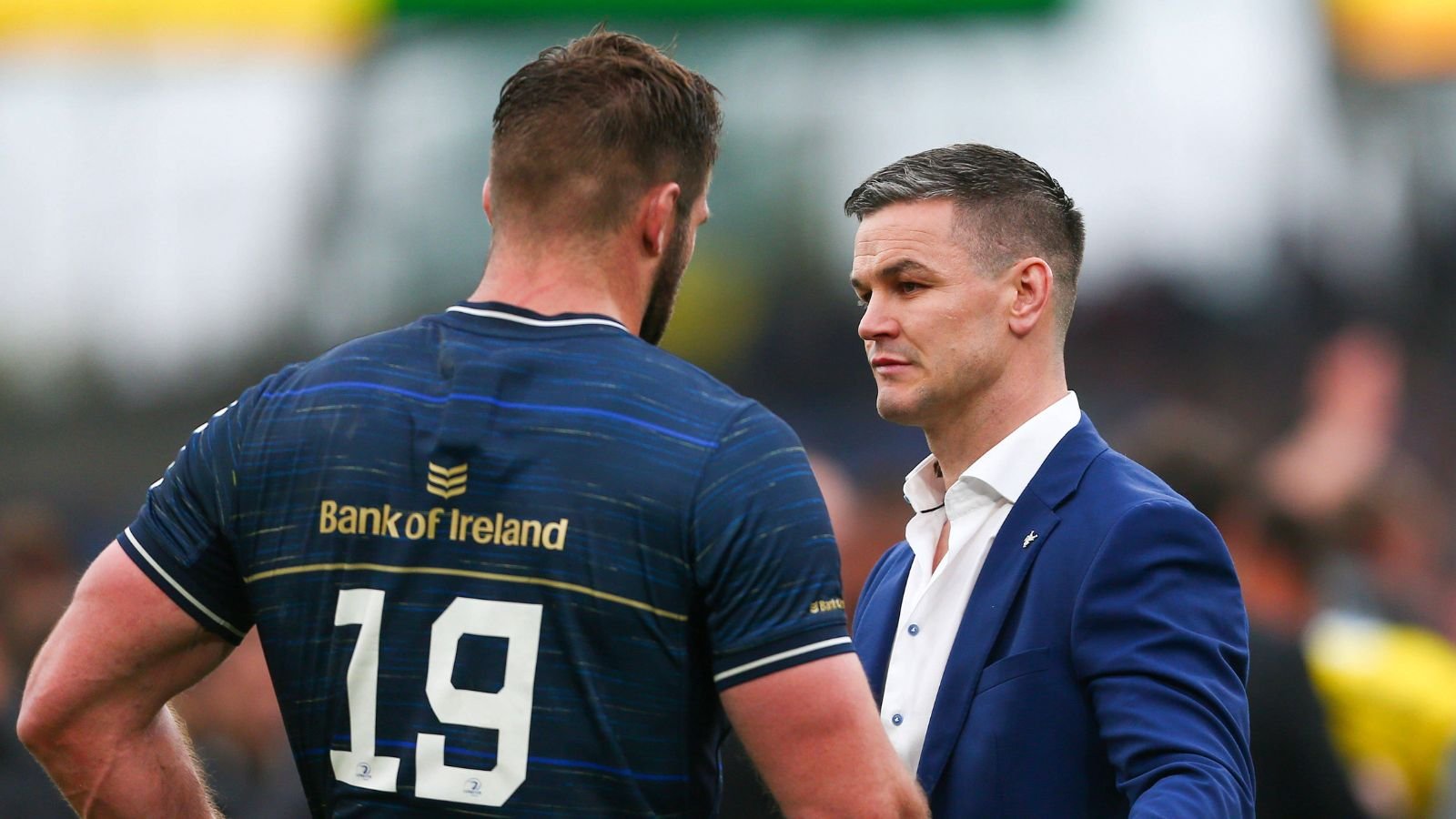Dave Rennie and the Wallabies: How does he rebuild a rugby empire?
New Wallabies coach Dave Rennie named his first squad on September 13
Credit: Getty Images
It’s not been the easiest time for any Wallabies fan over the last decade - take it from a passionate one.
When the full-time whistle went at the Oita Stadium on October 19 last year, Australian fans were left facing the stark reality of how far behind the world’s best sides they had fallen.
England had just rampaged over them by 40 points to 16 in a World Cup quarter-final. It was Australia’s heaviest-ever defeat in a World Cup knockout game and it was one that, on reflection, they never really got close to winning.
That defeat brought home to roost a very hard truth for the Wallabies and their fans. Their team, their style and their culture had serious, serious problems to address.
Michael Cheika departed his post as head coach in the aftermath of the tournament and Australian rugby was left at a genuine crossroads.
Many were left wondering what the way back was when their domestic Super Rugby franchises were, in the main, faring little better.
Glasgow Warriors head coach Dave Rennie was ultimately installed in the hot seat, but no-one connected to Australian rugby made any secret of the scale of the task before him.
As he names his first Wallabies squad, however, there are already signs that he is going about things the right way.
How does the squad look?
Filipo Daugunu is one of the uncapped players whose Super Rugby AU performances for the Reds have been recognised by Dave Rennie
Credit: AAP
It’s safe to say there were some changes to the Australian roster.
As many as 16 uncapped players graced the ranks of the 44-man squad unveiled by the new-look coaching staff, with Rennie making a clear statement that he was going to pick people who showed they had something to give.
It is no secret to anyone that the Wallaby squad has for a few years been plagued by deadwood.
Players in previous administrations were cycled in and out not necessarily based on anything more than because they had been there before.
It was leading to inconsistent selection strategies and stale performances from the men in gold.
Rennie has, admittedly, had his hand forced to a certain extent in his squad selection by an exodus of established international players after the 2019 World Cup.
Off the top of this writer’s head, perennial Wallaby picks Sekope Kepu, Nick Phipps, Will Genia, Kurtley Beale, Bernard Foley, Rory Arnold, Adam Coleman and Samu Kerevi have all been rendered unavailable through moves abroad or retirement.
It is important to note that some among that number remain eligible for Australian selection through the Giteau Law.
That is significant because it proves the faith Rennie is showing in home-based players - something he has spoken of himself already.
He is selecting players that are contributing to the zeitgeist of Australian rugby and allowing them to continue that work onto the international scene.
It is widely accepted that the Super Rugby AU competition has done wonders for the stock of Australian rugby within its own borders.
Seeing the best talent able to show their worth, win games and exude some confidence, instead of just getting crushed by New Zealanders every other week.
It made for an engaging competition and gave a glimpse of some of the genuine star power that must be allowed to develop, as well as getting fans back onside after what has seemed a very long estrangement.
For too long talented players have been left stifled and nervous by the barrage of defeats most Australian franchises have suffered in recent years and it has been reflected in the performances they give stepping up to international level.
However, having had ten weeks of competition that has allowed them to show their best, Australian rugby fans are now rubbing their hands at the prospect of the likes of Filipo Daugunu, Hunter Paisami, Harry Wilson, Irae Simone, Tate McDermott and, particularly, Noah Lolesio.
The young fly-half showed great maturity to carry his Brumbies team through the Super Rugby AU final on his first game back from injury, looking to have something really special about him.
Dave Rennie, unencumbered by club allegiances, player experiences or the pressure of previous selections, analysed each individual member and decided they deserved a place in the squad.
It gives Australian supporters belief that this time, things might be different.
What is the coach saying?
Dave Rennie has a job on his hands as Australia coach, but seems to have started well and stamped his authority
Credit: AAP
Dave Rennie was maybe not the most-touted name vying for the job, but plenty of what he has already done in rugby has given clues that he might be the man to address some glaring issues.
Rennie is a man of principle, first of all - his decision to take a voluntary 30% pay cut, due to the effects of the COVID-19 crisis, just weeks after taking the job speaks to that.
He works hard, clearly holds himself to a high standard and this is something he will not doubt imprint on his players. Too often Australian sides, particularly up front, have been dominated because they have simply been out-worked.
If Rennie’s Glasgow outfit are anything to go by, anyone guilty of that won’t last long.
Many who served with and under him at Glasgow Warriors have spoken highly of his ability as a coach and his management, but also his attention to detail and the lack of hesitation on making tough decisions.
Now-Scotland flyhalf Adam Hastings, whose debut for the Scottish outfit came under Rennie early in his tenure at Scotstoun, told The Flanker Podcast:
“Dave was fantastic with me as a coach, and for the team in a broader sense. His detail is just next level.
“His best thing is that he just knew how to get the best out of people. He just knew what buttons to press on certain players, he knew if someone needed an arm round the shoulder and to be almost babied a little bit and he knew if they needed a kick up the arse.
“He knew what I needed and more often than not it was the kick up the arse!
“He spent a lot of time with me personally, after games I would normally be in his office first thing Monday chatting through my clips and he would be on my case all week if he felt like I was slacking.
“He dropped me for a couple of months too, I had a couple of poor performances in my breakthrough year and he just dropped me.
“That did me the world of good, it sent a message home that I hadn’t cracked it and I only came back hungrier.
“He’s a brilliant coach and I think he’ll be brilliant for the Wallabies as well.”
There have always been egos in Australian rugby - some deserved, some possibly not - and managing those players has always been a vital task for any coach who takes this team on.
Hastings’ words tell their own story in not only singling him out as an excellent man manager, but also someone that will not tolerate sub-par efforts in any area.
What about the other coaches?
Scott Wisemantel left a role in Eddie Jones’ England setup to become Australia’s attack coach
Credit: David Rogers/Getty
Rennie has also taken visible steps to address traditional areas of weakness in Australian playing styles.
The no-nonsense set-piece expert Geoff Parling has been brought in on the back of masterminding a dramatic improvement in the Melbourne Rebels’ forwards.
Rennie will hope he can similarly address perennial inconsistencies at the scrum and lineout as well as help improve the pack’s discipline in terms of ball management.
Too often Wallaby sides have been guilty of getting outmuscled in the tight and coughing up cheap possession - something which will be top of Parling’s in-tray.
Attack coach Scott Wisemantel was poached from Eddie Jones’ England setup early on, where he was highly regarded for his work on England’s attacking structures and accuracy.
Australia have always been a side favouring playing offensively, but precision is often what they miss with handling errors an all too common theme as players literally overplay their hands.
The problem is, Australia have a fair claim to having some of the most talented attacking players in the world game - one look at Jordan Petaia’s work to set up Harry Wilson’s try in the Super Rugby AU final should speak to that.
If Wisemantel can simplify and rebuild the Wallaby attack as he did with England, it will stand them in good stead to unleash some of the freakish ability they possess in their back division.
Scotland boss Gregor Townsend’s long-time defence coach Matt Taylor has also been brought on board - along with Petrus du Plessis to mastermind the scrum - and it might be these two that have the biggest jobs on their hands.
The Wallabies’ defence has been leaky for years but if Taylor and Rennie between them can tighten that ship, it will go a long way to righting the wrongs of previous sides.
What Rennie has done is to bring in coaches with provable recent experience and who understand the game from a players’ perspective, which gives him at least a shot at building a team that can compete in the modern game.
So what happens now?
That is the great unknown in all this, isn’t it?
We can speculate all we like about the moves Rennie has made so far, where there is no doubt he is well on the way to getting the Australian public back on side and building a team capable of going after the best.
The problem is, that could all be for nought if these encouraging signs don’t manifest into on-field success.
The first test of this new side could hardly be a bigger one - taking on the All Blacks in Wellington on October 11, somewhere where they have not won since 2000 and the golden era of George Gregan, Joe Roff and John Eales
As they say, to be the best you have to test yourself against the best and that is no reason not to approach it with optimism, with the unknown awaiting every new international regime.
At the end of the day, Dave Rennie’s first job was to identify the players that he wants to take forward into his Wallabies era and get people believing in Australia again after what has been a testing few years under Cheika.
On those two counts, he seems to have done his job. Aided by the success of Super Rugby AU and his welcome stance on keeping faith with players that are willing to play in and serve Australia, he has made all the right noises so far and has given fans plenty of reason to wonder whether this is a turning point.
After years in the relative wilderness, this has the look of a new dawn for the men from Down Under. A fresh, young and talented squad, a coach with a vision to rebuild a rugby powerhouse and a public eager to see their tested faith repaid.
And now the fun begins.


























